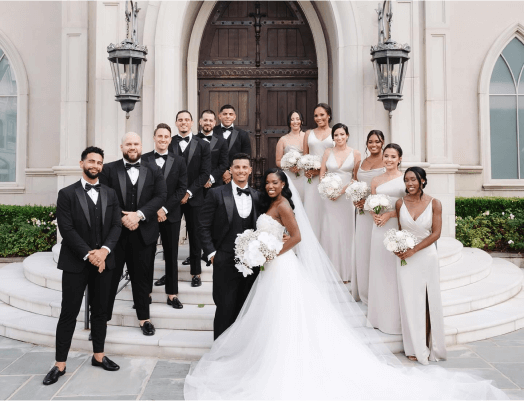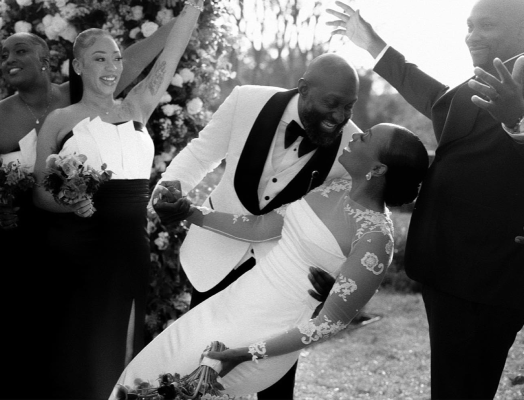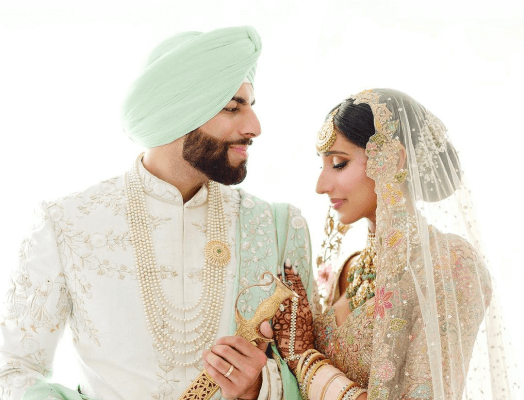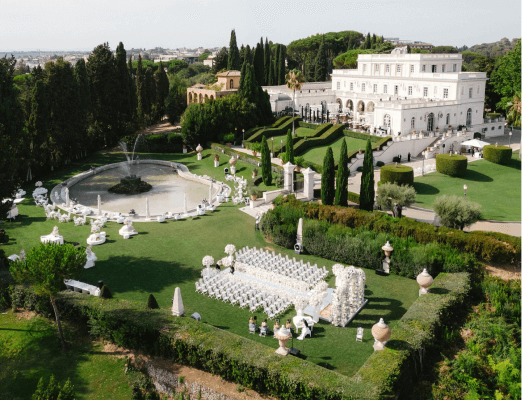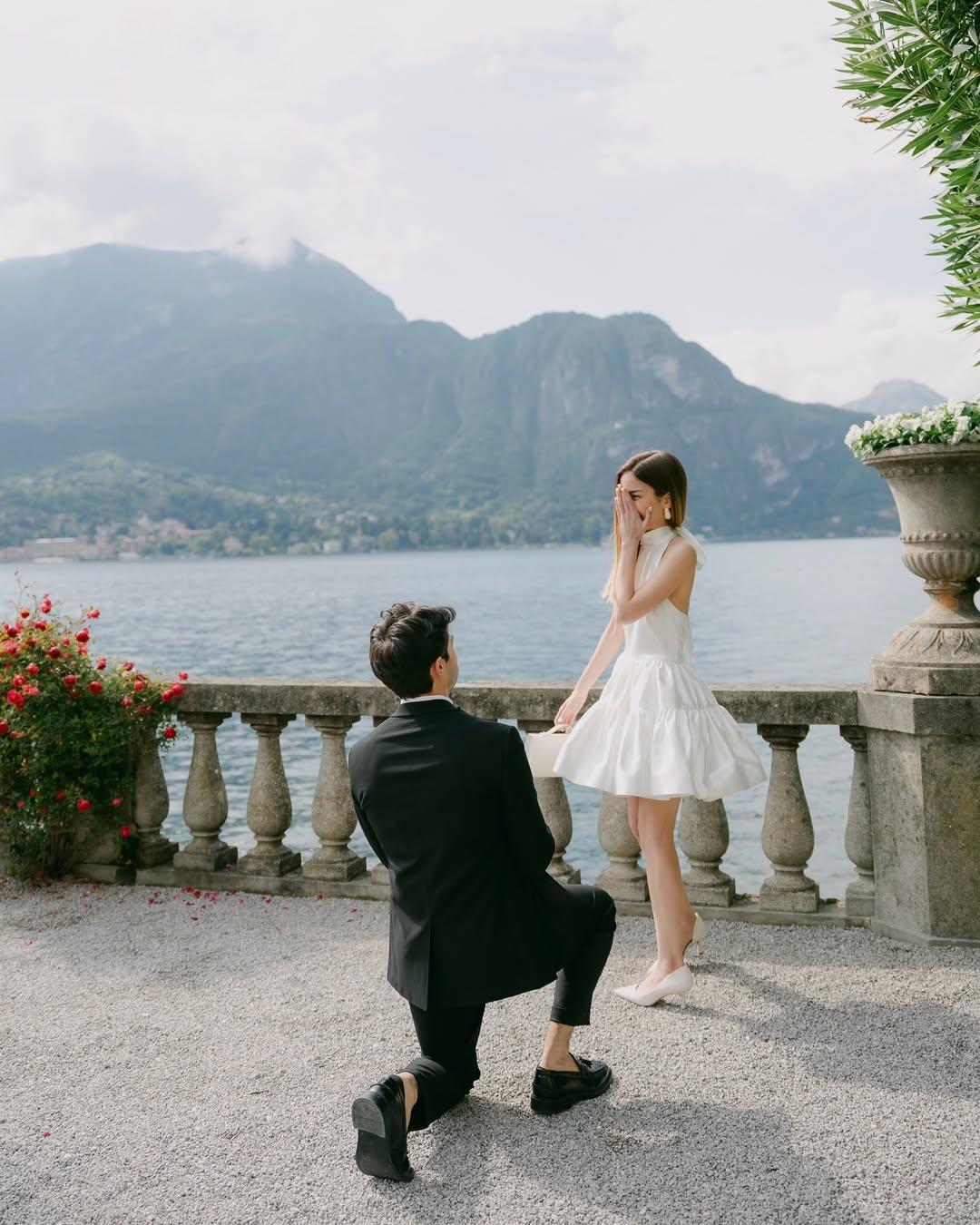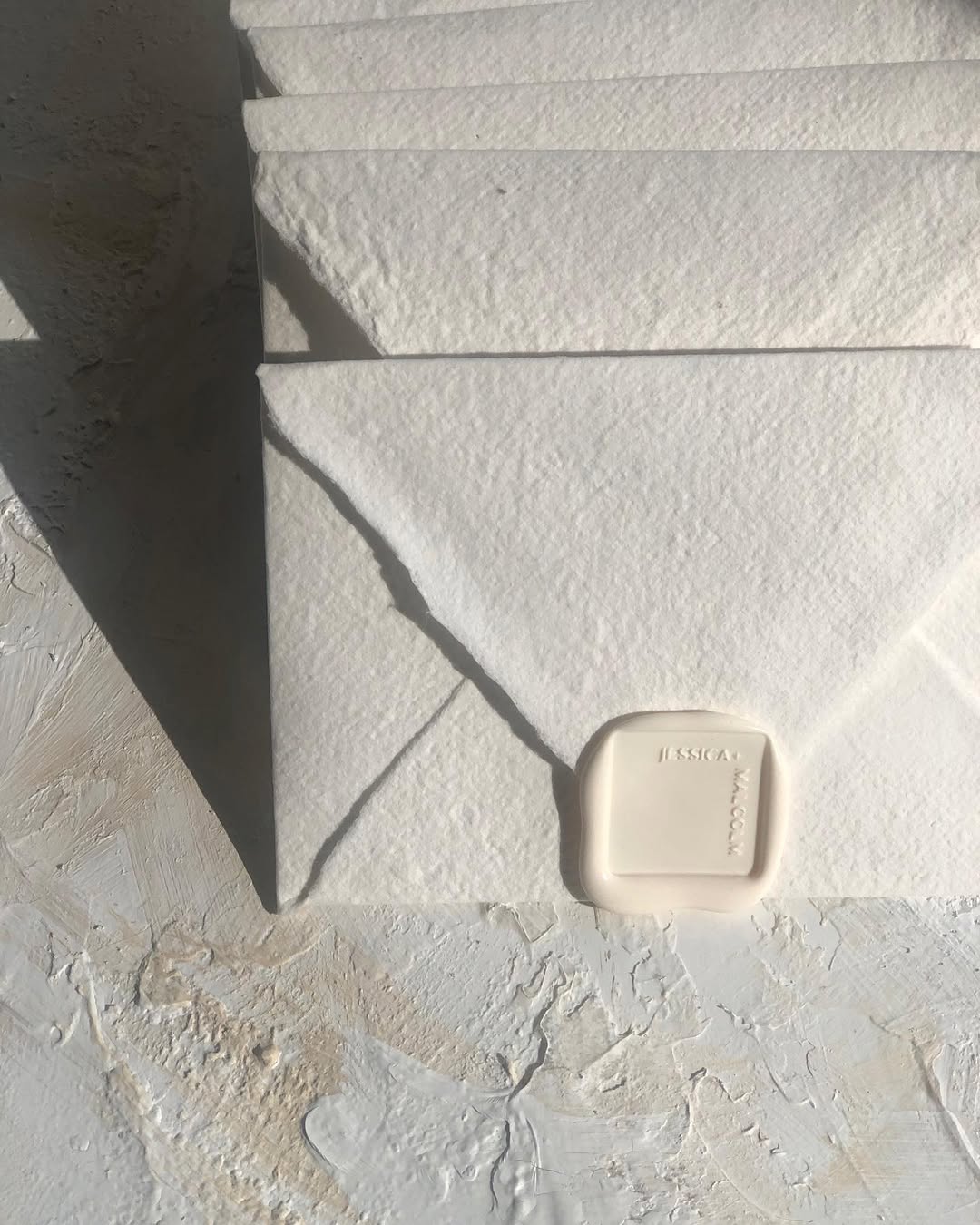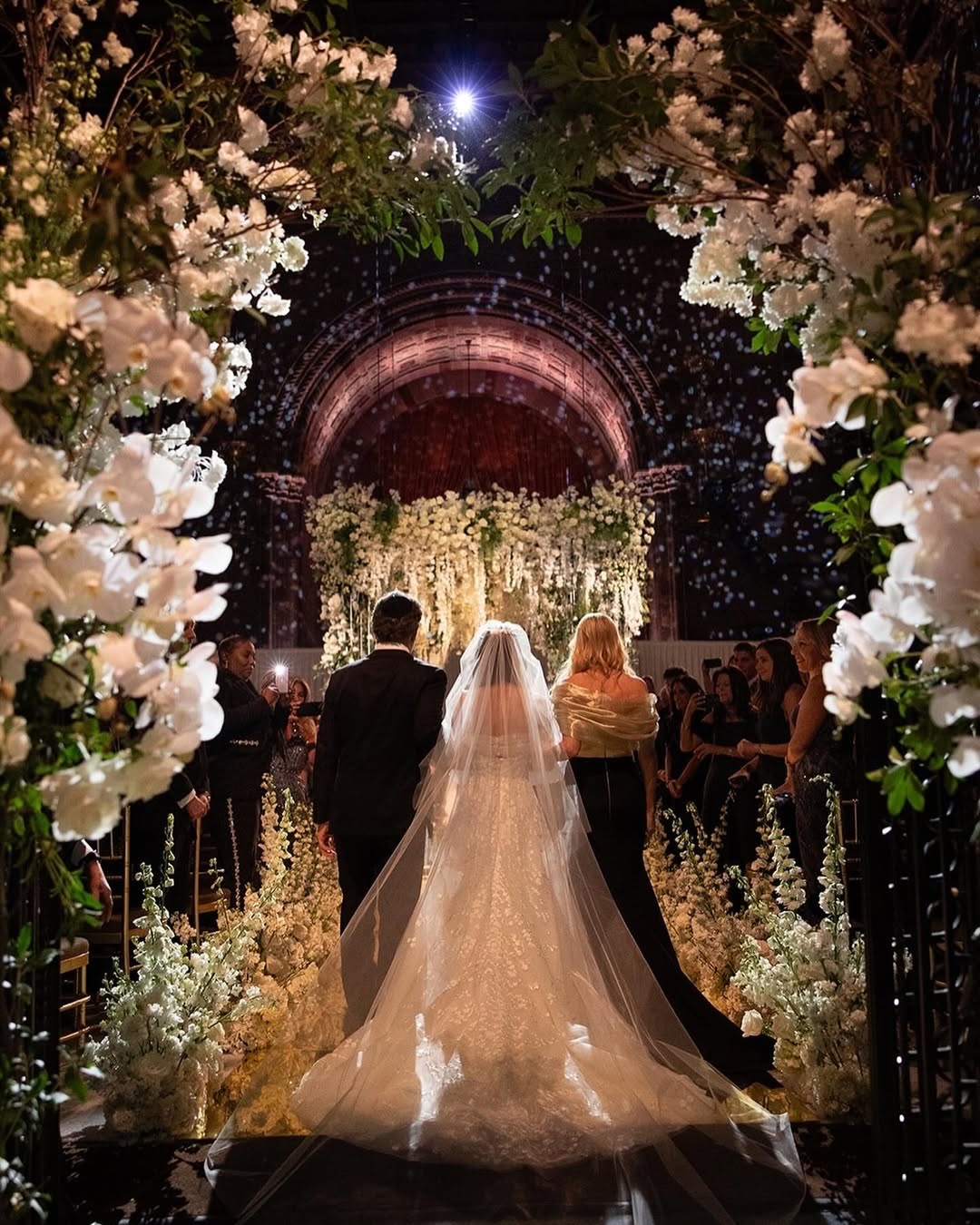Average Cost of Photographer and Videographer for Wedding
- Author: Natali Grace Levine
- Reading time: 6 min 38 sec
- Publication date: 06/24/2025
- Updated: 08/21/2025
Most couples experience sticker shock when they first see quotes from wedding photographers and videographers. A single photographer might charge what seems like a fortune, and adding videography can double that investment. The numbers feel overwhelming, especially when you're already juggling venue costs, catering, and a dozen other wedding expenses.
Wedding photography and videography typically account for 10-15% of a couple's total wedding budget, making it one of the largest single expenses after the venue and catering. This isn't just vanity spending—couples consistently report that their wedding photos and videos become more precious over time, long after the flowers have wilted and the cake has been eaten.
The pricing structure in this industry can seem completely arbitrary at first glance. One photographer charges $2,000 for eight hours of coverage while another demands $10,000 for what appears to be the same service. Understanding the factors behind these price differences—from experience and equipment to editing time and business overhead—helps couples make informed decisions rather than just choosing the cheapest option and hoping for the best.
Find Your Perfect Wedding Vendors
Understanding the Investment: Why Photographers and Videographers for Wedding Cost What They Do


Before diving into specific numbers, it's crucial to understand that wedding photography and videography aren't just about showing up and pressing a button. These professionals are running businesses that require significant investment in equipment, insurance, education, and time—lots of time.
Consider this: for every hour a photographer spends at your wedding, they typically spend 3-4 hours in post-production editing your images. A videographer might spend even more time crafting your final films. That 8-hour wedding day often translates to 30-40 hours of total work per wedding.
Photography Average Costs:
Budget-conscious couples: $1,500 - $3,000
Mid-range investment: $4,000 - $8,000
Premium experience: $8,000 - $12,000
Ultra-luxury: $12,000+
Videography Average Costs:
Starting packages: $1,500 - $4,000
Popular mid-tier: $4,000 - $7,000
High-end production: $8,000 - $10,500
Cinematic luxury: $10,500+
Average Cost for Wedding Photographer and Videographer Together:
Most couples save 15-25% when booking both services together, making combined packages an attractive option for comprehensive coverage.
The Major Cost Drivers: What Really Affects Your Final Price


The variation in wedding photography and videography pricing isn't random—it's driven by several key factors that directly impact the quality and scope of what you'll receive.
Experience Level and Portfolio Quality
There's a world of difference between a photographer who's shot 10 weddings and one who's captured 200. Experienced professionals command higher prices because they've learned to handle every situation that can arise on a wedding day—from difficult lighting to family drama to unexpected weather.
The average price for wedding photographer and videographer typically varies based on experience and skill level, with professionals moving through distinct pricing tiers as they build their businesses:
- Emerging professionals (1-2 years experience) often charge $1,500-$4,000 as they build their portfolios. While they may lack experience, many are incredibly talented and motivated to prove themselves.
- Established professionals (3-7 years) have found their style and built solid reputations, typically charging $4,000-$8,000. They've handled most situations and can deliver consistent results.
- Seasoned experts (8+ years) are masters of their craft who charge $8,000+ because they bring not just skill, but the confidence and experience to handle anything your wedding day throws at them.
Geographic Location and Market Demand
Where you're getting married has a massive impact on pricing. A photographer in Manhattan will charge significantly more than one in rural Montana—not because they're necessarily better, but because their business costs and market demand are completely different.
Major metropolitan areas like New York, Los Angeles, San Francisco, and Washington D.C. see average photography costs 40-60% above national averages. The higher cost of living, increased competition for venues, and generally higher wedding budgets drive these premium prices. Mid-size cities such as Austin, Nashville, or Portland typically align closely with national averages, offering a good balance of talent and reasonable pricing.
Smaller cities and rural areas often provide the best value, with skilled professionals charging 20-40% below national averages while still delivering beautiful work.
Wedding Style and Complexity
Not all weddings are created equal, and neither are their photography and videography needs. A simple courthouse ceremony requires different coverage than a three-day destination celebration. Traditional church weddings with standard receptions are typically the most straightforward to shoot and often fall into standard package pricing. Outdoor and destination wedding photographer and videographer services require additional equipment, travel costs, and often more complex lighting setups, driving up costs. Multi-cultural celebrations with multiple ceremonies, outfit changes, and cultural traditions require extended coverage and cultural sensitivity, justifying higher investment. Adventure and elopement weddings in remote locations command premium pricing due to travel, specialized equipment, and the unique challenges of shooting in non-traditional venues.

Understanding Wedding Photographers and Videographers’ Packages


One of the biggest sources of confusion for couples is understanding what's actually included in different photography and videography packages. The industry has evolved significantly, and what constitutes a "standard" package varies widely between professionals. Video has become increasingly important to couples, but understanding both photography and videography packages requires breaking down what you actually receive at different investment levels.
Photography Packages: From Basic to Premium
Most photographers' starting packages focus on capturing your day with basic post-production and digital delivery. These typically include 6-8 hours of coverage, which is enough for most ceremonies and receptions. You'll usually receive a curated selection of edited images—typically 400-600 photos for a full day. The photographer handles basic editing like color correction and exposure adjustments, but don't expect extensive retouching of every image. Digital delivery through an online gallery is now standard, along with print releases that allow you to make your own prints. However, you'll likely need to handle your own album creation and printing.
Mid-range photography packages offer more comprehensive coverage and additional services that make your experience smoother and more complete. Extended coverage often increases to 8-10 hours, allowing for getting-ready shots and later reception coverage. Some photographers include a second shooter at this level, providing multiple angles and ensuring no important moments are missed.
Engagement sessions are commonly included, giving you a chance to work with your photographer before the big day and providing images for save-the-dates or wedding websites. Enhanced editing means more time spent perfecting your images, with some photographers including basic retouching of key photos.
Premium photography packages transform photography from a service into a comprehensive experience. These photographers often serve as informal wedding day coordinators, helping with timeline planning and ensuring everything runs smoothly. Multiple photographers are standard, often including specialized second shooters who focus on details, guest reactions, or alternative angles.
Videography Options: Documentation to Cinematic Films
Entry-level videography focuses on documenting your day with minimal artistic enhancement. You'll typically receive raw or lightly edited footage of your ceremony and reception highlights.
Single-camera coverage is common at this level, with the videographer positioning themselves to capture the most important moments. Audio is usually recorded through the venue's sound system or basic microphone setups. Basic editing includes cutting together footage chronologically with simple transitions and basic color correction. The final product is usually a longer-form video that documents your day as it happened.


Cinematic wedding films represent mid-range and premium videography packages that focus on creating artistic films telling the story of your wedding day. Multiple camera angles provide dynamic coverage, with videographers using different lenses and perspectives to create visual interest. Professional audio recording ensures clear vows and speeches.
Stylized editing incorporates music, creative transitions, and storytelling techniques to create films that feel more like movies than simple documentation. Multiple deliverables are common, including highlight reels (3-5 minutes), ceremony films (full ceremony), and reception films (key moments and speeches).
Luxury video production resembles professional film production, with teams of videographers and specialized equipment creating truly cinematic experiences. Professional crews might include multiple camera operators, audio specialists, and drone pilots working together to capture every angle. Advanced equipment such as cinema-quality cameras, professional lighting, and stabilization equipment ensures broadcast-quality footage.

Hidden Costs and Additional Expenses You Should Know About


Even after you've selected your photographer and videographer, additional costs can surprise couples who haven't planned for them. Understanding these potential extras helps you budget more accurately and avoid unwelcome surprises.
Travel and Logistics
If your wedding is outside your photographer's immediate area, travel costs become a significant factor. Most professionals charge for travel time at their hourly rate, plus expenses for gas, flights, or accommodations.
Local travel (within 50 miles) might incur minimal charges or be included in packages. Regional travel (50-200 miles) typically involves travel time charges and possibly overnight accommodations. Destination coverage requires flights, multiple nights' accommodation, and often higher day rates to compensate for time away from other bookings.
Some photographers include travel costs in their destination packages, while others itemize them separately. Always clarify these costs upfront, especially for destination weddings.
Equipment and Technical Additions
Modern weddings often require specialized equipment that goes beyond standard photography and videography setups.
Drone photography and videography has become incredibly popular, but requires licensed pilots and additional permits for many venues. Expect to pay $300-$800 for drone coverage, plus any venue fees.
Specialized lighting for dark venues or outdoor evening events requires additional equipment and setup time. Professional lighting setups can add $200-$500 to your package.
Live streaming has become common for couples wanting to include remote family members. Basic streaming setups start around $500, while professional multi-camera streams can cost $1,500+.


Rush Orders and Premium Services
Wedding planning often involves last-minute changes and urgent requests that come with additional costs.
Expedited editing is common when couples need photos or videos quickly for thank-you cards or social media. Most photographers charge 25-50% additional for rush orders with delivery within 1-2 weeks instead of the standard 6-8 weeks.
Additional retouching beyond basic editing is often charged per image, typically $10-$25 per photo for extensive work like blemish removal or background changes.
Extra prints and albums beyond what's included in packages are usually available, but at premium prices compared to what you might pay elsewhere.







